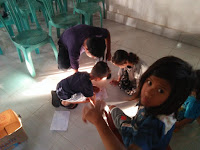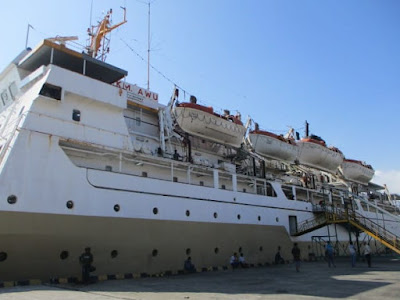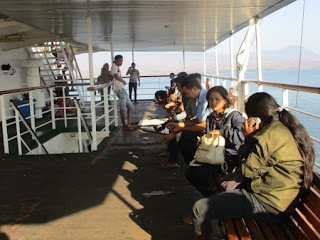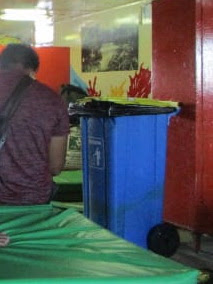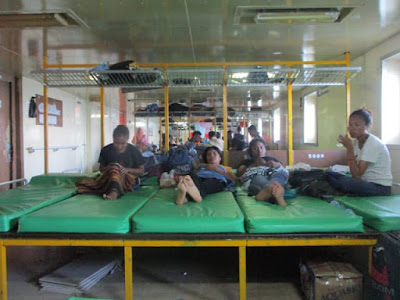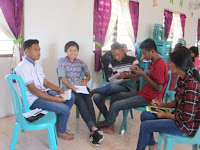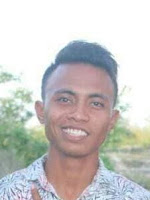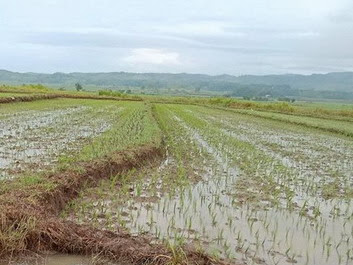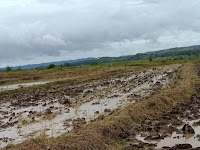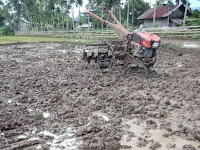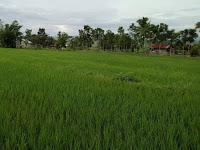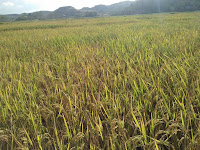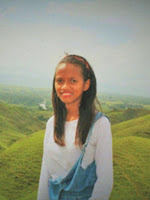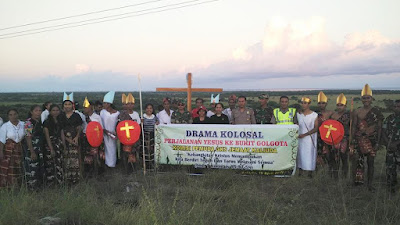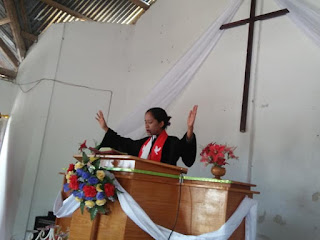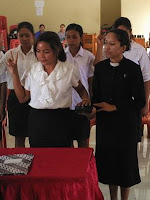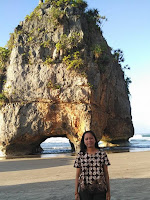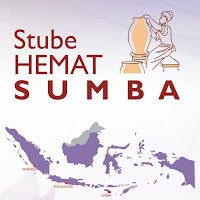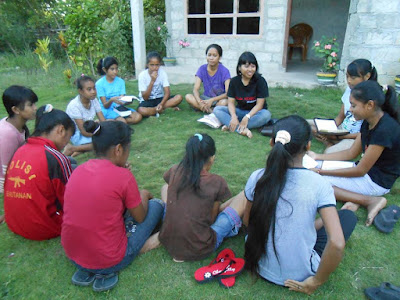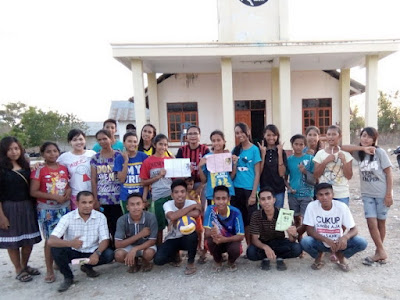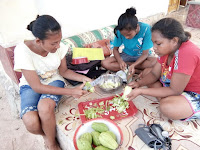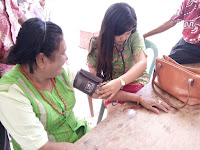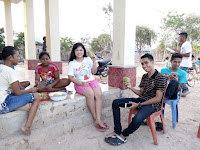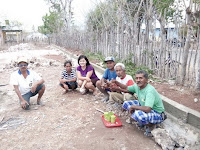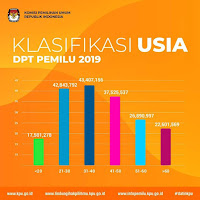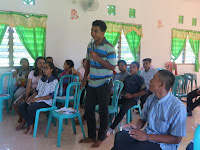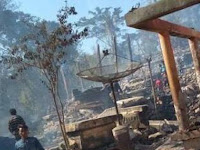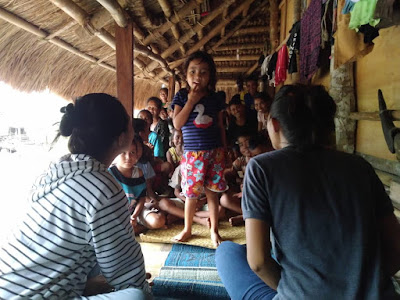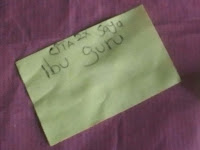Students Contribute to Their Villages Vi & Mi (Village and Me) Program
Wednesday, 11 December 2019by adminstube
 The opportunity for youths in Sumba to continue their studies to higher education is a valuable opportunity to improve their quality also the community life. The knowledge and skills they get in campus should also be felt by the villagers where they live. Stube-HEMAT Sumba as a student and youth mentoring service in Sumba encouraged them to pay attention to their villages and open opportunities through Village and Me program in the second period 2 of 2019, to ‘share blessings' of the knowledge and skills they learned in campus. The three-student participants are:
The opportunity for youths in Sumba to continue their studies to higher education is a valuable opportunity to improve their quality also the community life. The knowledge and skills they get in campus should also be felt by the villagers where they live. Stube-HEMAT Sumba as a student and youth mentoring service in Sumba encouraged them to pay attention to their villages and open opportunities through Village and Me program in the second period 2 of 2019, to ‘share blessings' of the knowledge and skills they learned in campus. The three-student participants are:
The works of these young people need to be appreciated, even though small activity in village but it has positive impact for the local community and village. This is our dream if every Indonesian student has concern to village. Indonesia with 83.931 village level administrative areas (BPS 2018) invites educated people to make villages continue improving and increasing people’s interest to live and work, so that villages develop and the welfare of the community will come true. (TRU).
A Girl Fights for Education Vebiati Lende
Friday, 29 November 2019by adminstube
 I am Vebiati Lende from Mareda Kalada, Southwest Sumba. Since I was in senior high school I wanted to continue my study and I told my mom about it. My mom really supported my wish. However, when I was in the second year of high school, my mother was sick and went to the hospital many times but she never recovered, even her illness could not be cured. In 2014 my mom, my loved ones left me forever, I was very shocked because someone who supported me to continue my study passed away. I thought my dreams had gone and it was useless to continue study higher because no one supported me anymore. In 2015 I was graduated from high school and I intended to work out of Sumba island because some young people in my area prefer to work out in other island.
I am Vebiati Lende from Mareda Kalada, Southwest Sumba. Since I was in senior high school I wanted to continue my study and I told my mom about it. My mom really supported my wish. However, when I was in the second year of high school, my mother was sick and went to the hospital many times but she never recovered, even her illness could not be cured. In 2014 my mom, my loved ones left me forever, I was very shocked because someone who supported me to continue my study passed away. I thought my dreams had gone and it was useless to continue study higher because no one supported me anymore. In 2015 I was graduated from high school and I intended to work out of Sumba island because some young people in my area prefer to work out in other island.
 I realized that my dad disagreed, so I had left my house before sunrise so that he did not know when I was out, walking down the path to the main road waiting for the bus from Southwest Sumba to Lewa in East Sumba. Finally, I registered as a student in Theology College of Sumba Christian Church in Lewa with a scholarship from PPA and my sister paid my boarding fees. For me, study at college is a struggle because I have to fulfill myself with money available for campus assignments and foods. Besides study, I also take part in campus activities, churches and organizations in order to increase my experiences. In semester five I got a miracle from God when my father said that he would support my study after seeing my determination to study, and now my dad also always goes to church. How God answers my prayers.
I realized that my dad disagreed, so I had left my house before sunrise so that he did not know when I was out, walking down the path to the main road waiting for the bus from Southwest Sumba to Lewa in East Sumba. Finally, I registered as a student in Theology College of Sumba Christian Church in Lewa with a scholarship from PPA and my sister paid my boarding fees. For me, study at college is a struggle because I have to fulfill myself with money available for campus assignments and foods. Besides study, I also take part in campus activities, churches and organizations in order to increase my experiences. In semester five I got a miracle from God when my father said that he would support my study after seeing my determination to study, and now my dad also always goes to church. How God answers my prayers.
 Everyone's life journey is not the same, my struggle to study at college is not just to continue my study but the struggle of Sumbanese women to get higher education opportunities for a better life, for themselves, families and the society of Sumba. For women who are struggling, please stay faithful, do not give up, broaden your network and keep on praying, because we do not know the God's answer to our lives and our time is different from God's time. Fight hard and achieve your dreams.
Everyone's life journey is not the same, my struggle to study at college is not just to continue my study but the struggle of Sumbanese women to get higher education opportunities for a better life, for themselves, families and the society of Sumba. For women who are struggling, please stay faithful, do not give up, broaden your network and keep on praying, because we do not know the God's answer to our lives and our time is different from God's time. Fight hard and achieve your dreams.
Being Smart to Aim Job Opportunities
Monday, 25 November 2019by adminstube
The learning opportunity to improve quality of young people have been available and a variety of local potency and business start-up strategies have been revealed, next how young people respond by preparing themselves and being smart to target work opportunities that are useful for themselves and the community where they live. Young people of Sumba, are you ready? (TRU).
The littering passangers and the scattered trashes on ‘Awu’ Motor Boat
Wednesday, 20 November 2019by adminstube
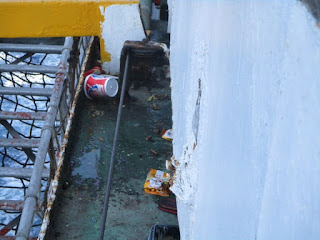 Having voyage with Awu from Waingapu to Surabaya, the writer experienced uncomfortable things because the ship was so dirty, its garbages were scattered everywhere, such as plastic cups, instant noodle cups, beverage bottles, cigarette butts and other rubbishes. Formerly, the writer thought that the ship is clean, but the reality was not as imagined.
Having voyage with Awu from Waingapu to Surabaya, the writer experienced uncomfortable things because the ship was so dirty, its garbages were scattered everywhere, such as plastic cups, instant noodle cups, beverage bottles, cigarette butts and other rubbishes. Formerly, the writer thought that the ship is clean, but the reality was not as imagined.
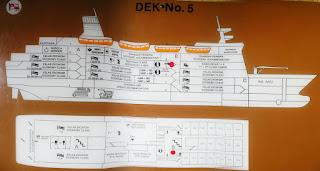 Awu is one ship belongs to PT Pelni, a company that manages sea transportation in Indonesia. Awu is a product from a shipyard in Papenburg, Germany in 1991 with 6.000 Gross tons (GT) heaviness, 99.80 m dimension lenght, 18.00 m width, and 15.00 Knots cruise speed. It is capable to carry 969 passengers, similar with Sirimau and Tatamailau motor boat. The name of Awu itself is taken from the name of the mountain in Sangihe Talaud islands, North Sulawesi.
Awu is one ship belongs to PT Pelni, a company that manages sea transportation in Indonesia. Awu is a product from a shipyard in Papenburg, Germany in 1991 with 6.000 Gross tons (GT) heaviness, 99.80 m dimension lenght, 18.00 m width, and 15.00 Knots cruise speed. It is capable to carry 969 passengers, similar with Sirimau and Tatamailau motor boat. The name of Awu itself is taken from the name of the mountain in Sangihe Talaud islands, North Sulawesi.
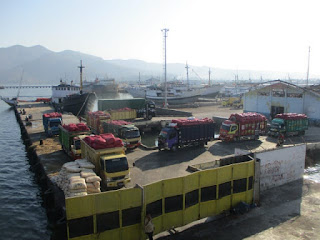
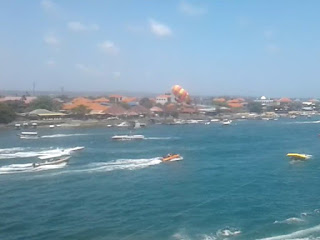 This ship usually serves passenger mobility and goods distribution among islands in Indonesia, especially the shipping lines of Kalabahi (Alor), Tenau (Kupang), Ende (Flores), Waingapu (Sumba), Bima (Sumbawa), Benoa (Bali), Surabaya (East Java) and Kumai (Central Kalimantan). Looking the route, it is apparent that Awu has significant existence to connect these areas so that the ship had to be well maintained. This is not only the responsibility of the ship company but also the passengers. It is important that everyone has to be aware of cleanliness starting from oneself, such as throwing trash in the rubbish bins.
This ship usually serves passenger mobility and goods distribution among islands in Indonesia, especially the shipping lines of Kalabahi (Alor), Tenau (Kupang), Ende (Flores), Waingapu (Sumba), Bima (Sumbawa), Benoa (Bali), Surabaya (East Java) and Kumai (Central Kalimantan). Looking the route, it is apparent that Awu has significant existence to connect these areas so that the ship had to be well maintained. This is not only the responsibility of the ship company but also the passengers. It is important that everyone has to be aware of cleanliness starting from oneself, such as throwing trash in the rubbish bins.
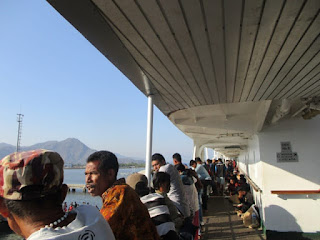 Feeling comfort during the voyage is the hope of ship officers and passengers, so both are responsible to implement it, started from cleanliness, passenger will feel comfort and the sea remains clean. Hopefully. (Vebiati Lende).
Feeling comfort during the voyage is the hope of ship officers and passengers, so both are responsible to implement it, started from cleanliness, passenger will feel comfort and the sea remains clean. Hopefully. (Vebiati Lende).
Igniting Ideas, Making Actions Exposure Program to Yogyakarta
Thursday, 24 October 2019by adminstube
 Exposure Program to Stube-HEMAT Yogyakarta is one of Stube-HEMAT Sumba programs that gives Sumba students opportunity, especially for those who have never been to Yogyakarta to study and to do activities in Stube-HEMAT Yogyakarta for approximately three weeks effective. The opportunity to visit other places, to interact with people who have different cultural and language backgrounds or have a different way of life will enrich participants to understand humans and life.
Exposure Program to Stube-HEMAT Yogyakarta is one of Stube-HEMAT Sumba programs that gives Sumba students opportunity, especially for those who have never been to Yogyakarta to study and to do activities in Stube-HEMAT Yogyakarta for approximately three weeks effective. The opportunity to visit other places, to interact with people who have different cultural and language backgrounds or have a different way of life will enrich participants to understand humans and life.
 Three young students who had the opportunity to study in Yogyakarta were Vebiati Lende (Theology college of Sumba Christian Church); Naomi Mora Kalak (Terpadu Theological College); and Kristiani Pedi (church activist and leader of Sumba youth community). During the visit, they explored Stube-HEMAT's vision and mission and concerned with young generation, sharpen their critical abilities through journalism, discussion of Sustainable Development Goals (SDGs) and homosexuality seminar. Regarding the SDGs, as a global determination to achieve world development goals for human welfare and preservation of nature with 17 indicators, Naomi was interested in a topic of clean water availability because not every people in Sumba get clean water supply; Vebi paid attention to stunting cases among Sumba children; and Kristiani focused on education because Sumba still faces challenges for qualified teachers, schools distribution in each district, and more educational opportunities for Sumba women.
Three young students who had the opportunity to study in Yogyakarta were Vebiati Lende (Theology college of Sumba Christian Church); Naomi Mora Kalak (Terpadu Theological College); and Kristiani Pedi (church activist and leader of Sumba youth community). During the visit, they explored Stube-HEMAT's vision and mission and concerned with young generation, sharpen their critical abilities through journalism, discussion of Sustainable Development Goals (SDGs) and homosexuality seminar. Regarding the SDGs, as a global determination to achieve world development goals for human welfare and preservation of nature with 17 indicators, Naomi was interested in a topic of clean water availability because not every people in Sumba get clean water supply; Vebi paid attention to stunting cases among Sumba children; and Kristiani focused on education because Sumba still faces challenges for qualified teachers, schools distribution in each district, and more educational opportunities for Sumba women.
What's going on with Sumba Education?
Monday, 16 September 2019by adminstube

 Education is one of ways to improve the quality of human life, even education becomes one of the indicators of achievement in Sustainable Development Goals (SDGs) 2020. Education does not talk only schools, but also the way to educate children at home, schools and community as communal responsibilities. Indonesia as an archipelagic country with more than 254 million people, has many challenges to educate its population with quality facilities and teachers in each region. It should be admitted that the quality of education in outer islands is still low because of the limitations of teachers and facilities.
Education is one of ways to improve the quality of human life, even education becomes one of the indicators of achievement in Sustainable Development Goals (SDGs) 2020. Education does not talk only schools, but also the way to educate children at home, schools and community as communal responsibilities. Indonesia as an archipelagic country with more than 254 million people, has many challenges to educate its population with quality facilities and teachers in each region. It should be admitted that the quality of education in outer islands is still low because of the limitations of teachers and facilities.
 This situation encourages Stube-HEMAT Sumba, an institution mentoring students and church youth in Sumba to hold a training on Education with a theme "What's going on with Sumba Education?" At GKS Okanggapi, the branch of GKS Umamapu (13-15/09/19). Thirty-two students from campuses and communities in East Sumba, such as Ukriswina, STT Terpadu, STT GKS, Akper, IKPML and Ana Tana community, enthusiastically attended training to find out education problems in Sumba and its analysis, formulating activities to promote education in remote villages, connecting stakeholders in education field, find information to access scholarships and non-formal education or strategies to deal with education problems in Sumba.
This situation encourages Stube-HEMAT Sumba, an institution mentoring students and church youth in Sumba to hold a training on Education with a theme "What's going on with Sumba Education?" At GKS Okanggapi, the branch of GKS Umamapu (13-15/09/19). Thirty-two students from campuses and communities in East Sumba, such as Ukriswina, STT Terpadu, STT GKS, Akper, IKPML and Ana Tana community, enthusiastically attended training to find out education problems in Sumba and its analysis, formulating activities to promote education in remote villages, connecting stakeholders in education field, find information to access scholarships and non-formal education or strategies to deal with education problems in Sumba. Oscar A. Djara, a practitioner at the Adjarmanu Foundation, an institution that focuses on education in Waingapu, East Sumba, explained the challenges and obstacles in managing education in Sumba, especially in remote areas that are difficult to reach, the location of schools far from residential areas, lack of transportation to schools and lack of Strata 1 graduated teacher committed to teaching. In general, the teachers prefer teaching in cities with higher salaries, while public awareness of the importance of education is still low.
Oscar A. Djara, a practitioner at the Adjarmanu Foundation, an institution that focuses on education in Waingapu, East Sumba, explained the challenges and obstacles in managing education in Sumba, especially in remote areas that are difficult to reach, the location of schools far from residential areas, lack of transportation to schools and lack of Strata 1 graduated teacher committed to teaching. In general, the teachers prefer teaching in cities with higher salaries, while public awareness of the importance of education is still low.
 Yusuf Waluwanja, M.Sc, the head of Education Office of East Sumba regency, presented material of the description of education in East Sumba and the government's strategic steps in overcoming problems of educational facilities and personnel. He revealed the government's way to improve the quality of education in the remote area of East Sumba, by building schools, opening parallel schools and improving teachers through education and training.
Yusuf Waluwanja, M.Sc, the head of Education Office of East Sumba regency, presented material of the description of education in East Sumba and the government's strategic steps in overcoming problems of educational facilities and personnel. He revealed the government's way to improve the quality of education in the remote area of East Sumba, by building schools, opening parallel schools and improving teachers through education and training.
 As a breakthrough in overcoming the problem of education in Sumba, the manager of Hamu Wangu Reading group, Ferlyn Paramba was invited to this training with a topic of building a reading space to build intelligent people. The presence of reading groups support the early child development and gives them an understanding of education in gentle and friendly manner so that young children understand and are not awkward in learning. “If young students are involved in teaching, they must be smart and creative, so that children do not get bored," she said.
As a breakthrough in overcoming the problem of education in Sumba, the manager of Hamu Wangu Reading group, Ferlyn Paramba was invited to this training with a topic of building a reading space to build intelligent people. The presence of reading groups support the early child development and gives them an understanding of education in gentle and friendly manner so that young children understand and are not awkward in learning. “If young students are involved in teaching, they must be smart and creative, so that children do not get bored," she said.
 One of the trainees, Kristiani Pedi revealed her experience accompanying children's learning, "Because I have an interest in early childhood education, so I also learned it. I found different character of each child, so in this training I was motivated to initiate learning groups for children, especially characters, because if they learn good manner now, they will know the benefit in the future," she said.
One of the trainees, Kristiani Pedi revealed her experience accompanying children's learning, "Because I have an interest in early childhood education, so I also learned it. I found different character of each child, so in this training I was motivated to initiate learning groups for children, especially characters, because if they learn good manner now, they will know the benefit in the future," she said.
General Election & Position Transaction Krisdayanti Wola, Theology Scholar, STT Lewa-Sumba
Monday, 8 July 2019by adminstube
Religion Role To Shape Leader’s Character Aprialdo Altrians Hermanus, Theology, STT GKS Lewa
Thursday, 27 June 2019by adminstube
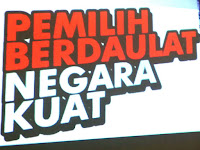 The Indonesian government understands a term of ‘government is from people, by the people and for the people’ so that sovereignty is in the hands of the people. Simultaneous elections to vote leaders have been held on April 17, 2019. People have high hopes for the leaders who have been chosen, therefore the leaders must keep their promises made during the campaign by doing their duties as best and fair as possible. The community has responsibility to control and even ask promises or work programs to be carried out. Unfortunately, political promises during the campaign were often forgotten when the leaders got a comfortable chair and strong authority. Worse they committed corruption, did power abuse, involved in prostitution even domestic violence, and so on.
The Indonesian government understands a term of ‘government is from people, by the people and for the people’ so that sovereignty is in the hands of the people. Simultaneous elections to vote leaders have been held on April 17, 2019. People have high hopes for the leaders who have been chosen, therefore the leaders must keep their promises made during the campaign by doing their duties as best and fair as possible. The community has responsibility to control and even ask promises or work programs to be carried out. Unfortunately, political promises during the campaign were often forgotten when the leaders got a comfortable chair and strong authority. Worse they committed corruption, did power abuse, involved in prostitution even domestic violence, and so on.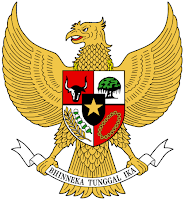 What kinds of effort should be taken to reduce those bad things above? We know that success of a country is closely related to the leaders’ ethics and morals. Indonesia is a country that upholds the values of divinity, proven from the first principle of Pancasila, Believe in one supreme God. It means that religion has strong influence on the whole life of this nation in which every religion teaches good ethics and morals in establishing good relations among people.
What kinds of effort should be taken to reduce those bad things above? We know that success of a country is closely related to the leaders’ ethics and morals. Indonesia is a country that upholds the values of divinity, proven from the first principle of Pancasila, Believe in one supreme God. It means that religion has strong influence on the whole life of this nation in which every religion teaches good ethics and morals in establishing good relations among people.Empowering Farmer Through Credit Union Nina Ndoda, a Theology Student, Theological Institute of Lewa-Sumba
Tuesday, 25 June 2019by adminstube
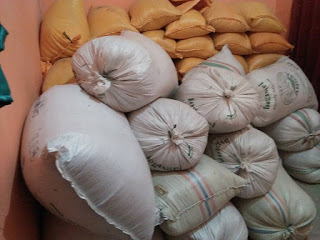 Unfortunately, Lewa farmers are still living far from prosperity, even though if we analyzed, actually farming will give big profit, because Lewa farmers can harvest 3-4 times a year and receive money up to fifty million rupiahs at the minimum. But there are many farmers in Lewa that couldn’t afford to feed themselves everyday, many children dropped out of school, many of them are living in dilapidated houses, etc. It is very ironic that a place rich with arable land but many of inhabitants not living in prosperity.
Unfortunately, Lewa farmers are still living far from prosperity, even though if we analyzed, actually farming will give big profit, because Lewa farmers can harvest 3-4 times a year and receive money up to fifty million rupiahs at the minimum. But there are many farmers in Lewa that couldn’t afford to feed themselves everyday, many children dropped out of school, many of them are living in dilapidated houses, etc. It is very ironic that a place rich with arable land but many of inhabitants not living in prosperity.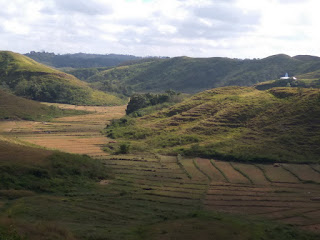 Many farmers went debt-ridden with loan sharks became one of the reasons for the stagnation of the farmer’s living standards. Their freshly harvested rice is instantly given to loan sharks to pay their debt. When its time to sow the lands, farmers borrowed money from loan sharks to buy fertilizers and other accommodations, neglecting the high-interest rate, just focusing to have some money to start sowing rice. It is what is often called “digging a hole to close another”.
Many farmers went debt-ridden with loan sharks became one of the reasons for the stagnation of the farmer’s living standards. Their freshly harvested rice is instantly given to loan sharks to pay their debt. When its time to sow the lands, farmers borrowed money from loan sharks to buy fertilizers and other accommodations, neglecting the high-interest rate, just focusing to have some money to start sowing rice. It is what is often called “digging a hole to close another”.The Awakening Presence For Togetherness Reflection on the presence of Exploring Sumba Participants in Sumba Christian Church of Kaliuda
Saturday, 22 June 2019by adminstube
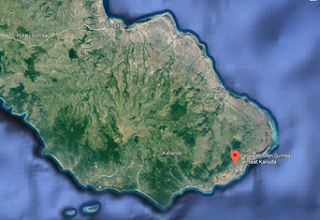 Kaliuda is a small village, part of Pahunga Lodu district located on the eastern tip of Sumba Island, about 110 km to the east of Waingapu, the capital of East Sumba regency. Pahunga Lodu means Rising Sun because the sun rises earlier here than other districts in Sumba.
Kaliuda is a small village, part of Pahunga Lodu district located on the eastern tip of Sumba Island, about 110 km to the east of Waingapu, the capital of East Sumba regency. Pahunga Lodu means Rising Sun because the sun rises earlier here than other districts in Sumba.
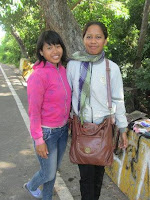 This longing was realized in 2014, Novia Sih Rahayu was sent to Kaliuda as a participant in Exploring Sumba. She came from Yogyakarta and brought training material how to be event leader or Master of Ceremonies (MC) for youth and church youth. At first they were not confident enough to speak in public, but Novi was patient enough to train them so that they slowly dared and were confident to come forth and practice leading an event. At present some of them become leaders of the youth fellowship and leader of Sunday worship liturgy.
This longing was realized in 2014, Novia Sih Rahayu was sent to Kaliuda as a participant in Exploring Sumba. She came from Yogyakarta and brought training material how to be event leader or Master of Ceremonies (MC) for youth and church youth. At first they were not confident enough to speak in public, but Novi was patient enough to train them so that they slowly dared and were confident to come forth and practice leading an event. At present some of them become leaders of the youth fellowship and leader of Sunday worship liturgy.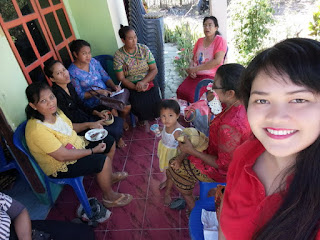 The following participants of Exploring Sumba came in 2016 was Imelda Dewi Susanti from West Kalimantan. She delivered material and training on hypertension and how to deal with gymnastics and traditional medicines. Imelda's presence greatly helped the church members to behave healthy and diligently go to church. She often visited church members’ house and had dialogue with them, giving advice on healthy living and checking heart rate and practising exercise as a cheap, natural and simple medicine.
The following participants of Exploring Sumba came in 2016 was Imelda Dewi Susanti from West Kalimantan. She delivered material and training on hypertension and how to deal with gymnastics and traditional medicines. Imelda's presence greatly helped the church members to behave healthy and diligently go to church. She often visited church members’ house and had dialogue with them, giving advice on healthy living and checking heart rate and practising exercise as a cheap, natural and simple medicine.
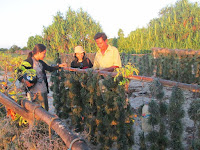
 From both of them, I found memorable experiences when Novi woke up early and went to beach, took selfie photos during waiting for the sunrise, after that we went home and visited one house of the church member. The family felt so happy because of the visit and then gave Novi a hen to be taken home to Java. When I was with Imelda, she often woke up early to visit the house of church's koster and waited for him from the palm tree to harvest ‘tuak’ tree water.
From both of them, I found memorable experiences when Novi woke up early and went to beach, took selfie photos during waiting for the sunrise, after that we went home and visited one house of the church member. The family felt so happy because of the visit and then gave Novi a hen to be taken home to Java. When I was with Imelda, she often woke up early to visit the house of church's koster and waited for him from the palm tree to harvest ‘tuak’ tree water.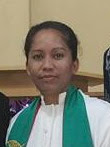 I hope Stube continue to strive to realize its motto, through its programs and activities that are beneficial and needed by the young generation of Sumba as assets of church and society. For the Exploring Sumba participants, it needs seriousness in preparing materials and training contents so the guidance and training can be optimally obtained.
I hope Stube continue to strive to realize its motto, through its programs and activities that are beneficial and needed by the young generation of Sumba as assets of church and society. For the Exploring Sumba participants, it needs seriousness in preparing materials and training contents so the guidance and training can be optimally obtained.
Reading and Writing Habits Among Students Netyana R. Boba Joru, Christian Education, Lewa - Institute of Theology
Saturday, 11 May 2019by adminstube
Pluralism Test In General Election Marinus Padjaru Djowa, Faculty of Law, Unkriswina Sumba.
Wednesday, 8 May 2019by adminstube
Civil State Aparatus and Neutrality in General Elections Marinus Padjaru Djowa, Law Faculty, Christian University of Wira Wacana, Sumba
Saturday, 4 May 2019by adminstube
Vocational School Graduates Dominate Unemployment in Indonesia Solfina Lika Lija, Theology, STT Terpadu
Wednesday, 24 April 2019by adminstube
Involving Students To Make Campus Regulation (Jitro Tamu Ama, Mathematics, Unkriswina-Sumba)
Wednesday, 24 April 2019by adminstube
Livestocks Theft In Sumba Island Rambu Melani Konga, Husbandry, Unkriswina
Saturday, 20 April 2019by adminstube
Can Indonesia Be Free From Corruption? Tamu Ina Rambu Hudang, Management, Unkriswina
Wednesday, 17 April 2019by adminstube
Preparing Earnest Writer
Wednesday, 10 April 2019by adminstube
 “The writing ability of East Sumba youth is still minimum, either writing opinion or report style. Further, writing is important skill to master by youth and moreover by college students. In this global era, youth is required to develop many skills, covering writing, as it can be used to voice aspiration, justice for marginalized people and so on. There are many more usage of writing mastery”, Yulius Anawaru one of Stube HEMAT Sumba team said when he was interviewed at the secretary, on Monday, April 8, 2019.
“The writing ability of East Sumba youth is still minimum, either writing opinion or report style. Further, writing is important skill to master by youth and moreover by college students. In this global era, youth is required to develop many skills, covering writing, as it can be used to voice aspiration, justice for marginalized people and so on. There are many more usage of writing mastery”, Yulius Anawaru one of Stube HEMAT Sumba team said when he was interviewed at the secretary, on Monday, April 8, 2019. Rudyolof Imanuel Malo Pinda, S.Sos, became the training facilitator and first he shared some tips how a writing is worthy for mass media, “In writing either opinion or report, one should be diligent to read and up dated with new information. He/she should write actual themes or themes that will be actual among people’s life. Interesting and actual theme is much worthy for mass media”.
Rudyolof Imanuel Malo Pinda, S.Sos, became the training facilitator and first he shared some tips how a writing is worthy for mass media, “In writing either opinion or report, one should be diligent to read and up dated with new information. He/she should write actual themes or themes that will be actual among people’s life. Interesting and actual theme is much worthy for mass media”. General Elections 2019: Know and Participate! Student Discussion at Stube-HEMAT Sumba
Monday, 25 February 2019by adminstube
 Entering 2019 Indonesia keep on preparing a ‘democracy party’ that will be held on April 17, 2019. A type ofdemocratic country is the best choice for this nation, therefore general election is the legitimate way to elect state leaders and representatives of the nation having ethnic diversities, languages, cultures and religions.
Entering 2019 Indonesia keep on preparing a ‘democracy party’ that will be held on April 17, 2019. A type ofdemocratic country is the best choice for this nation, therefore general election is the legitimate way to elect state leaders and representatives of the nation having ethnic diversities, languages, cultures and religions.
 Octavianus, in his presentation conveyed several matters relating to the implementation of elections, voters, thecandidates of legislative, and the challenges faced in general elections. This year's election is much challenging because it is simultaneously vote covering president, regional representatives, Indonesian House of Representatives members both in Provinciallevel and regional level. Let us make our participation realby giving vote to credible leaders. If we abstain, leaders who are not qualified can be in power. In addition, young people and millennials need to be smart againsting the hoax news sent via mobile phones or social media aiming for anxiety.
Octavianus, in his presentation conveyed several matters relating to the implementation of elections, voters, thecandidates of legislative, and the challenges faced in general elections. This year's election is much challenging because it is simultaneously vote covering president, regional representatives, Indonesian House of Representatives members both in Provinciallevel and regional level. Let us make our participation realby giving vote to credible leaders. If we abstain, leaders who are not qualified can be in power. In addition, young people and millennials need to be smart againsting the hoax news sent via mobile phones or social media aiming for anxiety.
Opening New Perspective on Politics Church and Political Training
Monday, 18 February 2019by adminstube
 April 17, 2019 is the most challenging general election for Indonesians because they will elect legislative members in 3 levels covering regional, provincial,national DPR, Regional Representative (DPD), and the President and Vice-President simultaneously. It is admitted that the general election is the most democratic tool for electing representatives and leader. According to General Election Commission (KPU) data, young voters, aged 17-30 years, reaches 60.345.070 people. It means that young voters have big contribution in determining the direction of this nation ahead.
April 17, 2019 is the most challenging general election for Indonesians because they will elect legislative members in 3 levels covering regional, provincial,national DPR, Regional Representative (DPD), and the President and Vice-President simultaneously. It is admitted that the general election is the most democratic tool for electing representatives and leader. According to General Election Commission (KPU) data, young voters, aged 17-30 years, reaches 60.345.070 people. It means that young voters have big contribution in determining the direction of this nation ahead. This reality becomes a concern of Stube-HEMAT Sumba, an institution mentoring students and young people in Sumba, byhaving a training on Church and Politics with a theme, "Are we ready to give our best for Nations and countries in the general election?". It was held at GKS Okanggapi, a branch church of GKS Umamapu (15-17/2/2019 ), that attended by twenty-eight students from various campuses in East Sumba, such as Unwina Sumba, STT Terpadu Waingapu, Lewa STT GKS, AKN of East Sumba, and Ana Tana Community.
This reality becomes a concern of Stube-HEMAT Sumba, an institution mentoring students and young people in Sumba, byhaving a training on Church and Politics with a theme, "Are we ready to give our best for Nations and countries in the general election?". It was held at GKS Okanggapi, a branch church of GKS Umamapu (15-17/2/2019 ), that attended by twenty-eight students from various campuses in East Sumba, such as Unwina Sumba, STT Terpadu Waingapu, Lewa STT GKS, AKN of East Sumba, and Ana Tana Community. "The training on Church and Politics is a kind of activity to prepare young people to welcome general election on April 17, 2019. Hopefully they will realize their responsibility as citizens to participate in elections and be able to determine the best choice for this nation. In addition, laterthey will be able to be agents to give correct understanding to public about politics", said Apriyanto Hangga, one of the working team of Stube-HEMAT Sumba.
"The training on Church and Politics is a kind of activity to prepare young people to welcome general election on April 17, 2019. Hopefully they will realize their responsibility as citizens to participate in elections and be able to determine the best choice for this nation. In addition, laterthey will be able to be agents to give correct understanding to public about politics", said Apriyanto Hangga, one of the working team of Stube-HEMAT Sumba. Some figures and practitioners who are competent in their fields provided reinforcement to participants, including Rev. Alfed Djama Samani, S.Th, general chairman of GKS Synod. He explained the role of the church in political life. He revealed, "People who think that politics is dirty are wrong, but it can be understood that politics is also the same with other fields to pay attention to all groups, because politics concern the lives of many people." So young people need to improve their perspective on politics.
Some figures and practitioners who are competent in their fields provided reinforcement to participants, including Rev. Alfed Djama Samani, S.Th, general chairman of GKS Synod. He explained the role of the church in political life. He revealed, "People who think that politics is dirty are wrong, but it can be understood that politics is also the same with other fields to pay attention to all groups, because politics concern the lives of many people." So young people need to improve their perspective on politics. Next, Umbu Pajaru Lombu, SH., MM delivered a material for Beginner Voters and Their Impacts on Election Results. He encouraged millennials to realize the role of voters, map and determine the right choice for people who are fighting for the right politics.
Next, Umbu Pajaru Lombu, SH., MM delivered a material for Beginner Voters and Their Impacts on Election Results. He encouraged millennials to realize the role of voters, map and determine the right choice for people who are fighting for the right politics. Then, Hina Mehang Patalu, SE, a member of the East Sumba Election Supervisory Body (Bawaslu) explained the Bawaslu's task as the election organizing body to carry out prevention, supervision and enforcement so that the Election ran well and smoothly. Basically, every Indonesian citizen has the same right to oversee the implementation of elections, especially millennials who are familiar with technology can play role more to oversee the election.
Then, Hina Mehang Patalu, SE, a member of the East Sumba Election Supervisory Body (Bawaslu) explained the Bawaslu's task as the election organizing body to carry out prevention, supervision and enforcement so that the Election ran well and smoothly. Basically, every Indonesian citizen has the same right to oversee the implementation of elections, especially millennials who are familiar with technology can play role more to oversee the election.Major General (ret.) Jan Piter Ate, a retired TNI and political practitioner explained the impact and benefits of political results on various policies relating to people's lives. He also reminded young people as 'agent of change' through politics, because in politics all policies relating to the direction of the nation were determined and the policy had an impact on society.
 Vebiati Lende, a student of STT GKS Lewa revealed, "At first I was not interested in politics because I thought that politics was dirty and evil. But in this training, my perception changed, it turned out that politics was initially good, but politicians who cheated caused people considered thatpolitics is dirty. In fact, I want to participate in the election because the government has tried to make the election run well. Young people must vote to find the right person having leaderships and integrity".
Vebiati Lende, a student of STT GKS Lewa revealed, "At first I was not interested in politics because I thought that politics was dirty and evil. But in this training, my perception changed, it turned out that politics was initially good, but politicians who cheated caused people considered thatpolitics is dirty. In fact, I want to participate in the election because the government has tried to make the election run well. Young people must vote to find the right person having leaderships and integrity".
Spreading Love, Growing Hope Students services for people in Bondomaroto, West Sumba
Wednesday, 30 January 2019by adminstube
 Our first step was on January 11, 2019. We visited the village and met the head oflocal village. He responded well and was very grateful for the activity planning with the children. He suggested us to make appointment with them because after school they usually went to fields to help their parents on their rice fields. Although they were young, they have to work to fulfill their daily needs. Finally, we agreedthat our activity would be held on January 14, 2019 after they returned from school. Even the village head was ready to help gathering the children to join the event. After observation we discussed our preparation and distributing our jobs, such as ice breaking games, songs and material about children's rights that we had learned before. We wanted to invite children to 'learn and play' together. Besides the program, we also prepared equipment and snacks for them.
Our first step was on January 11, 2019. We visited the village and met the head oflocal village. He responded well and was very grateful for the activity planning with the children. He suggested us to make appointment with them because after school they usually went to fields to help their parents on their rice fields. Although they were young, they have to work to fulfill their daily needs. Finally, we agreedthat our activity would be held on January 14, 2019 after they returned from school. Even the village head was ready to help gathering the children to join the event. After observation we discussed our preparation and distributing our jobs, such as ice breaking games, songs and material about children's rights that we had learned before. We wanted to invite children to 'learn and play' together. Besides the program, we also prepared equipment and snacks for them.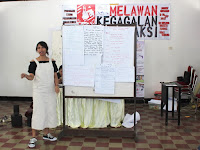 * The writer is currently a theology student of STT GKS in Lewa, East Sumba. She has participated in several trainings at Stube-HEMAT Yogyakarta (2017) and Journalism training at Stube-HEMAT Sumba (2018).
* The writer is currently a theology student of STT GKS in Lewa, East Sumba. She has participated in several trainings at Stube-HEMAT Yogyakarta (2017) and Journalism training at Stube-HEMAT Sumba (2018).





